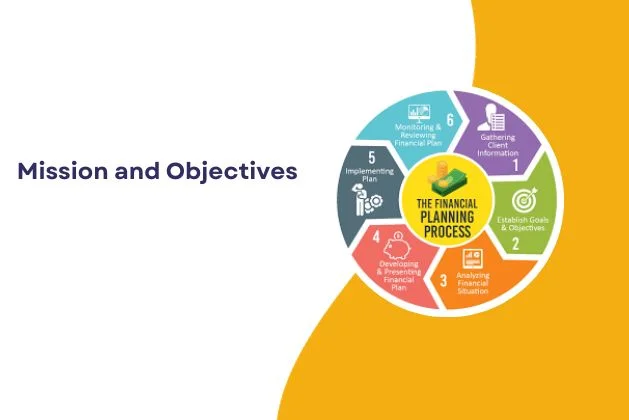Table of Contents
ToggleIntroduction
The Financial Planning Standards Board (FPSB) India is a non-profit professional organization that plays a pivotal role in promoting and regulating financial planning in India.
Established in 2002, FPSB India is part of a global network that aims to raise the standards of financial planning worldwide.
What is Financial Planning?

Financial planning is a systematic and strategic approach to managing one’s finances, encompassing a range of activities aimed at achieving specific financial goals.
It involves a thorough assessment of current financial circumstances, the establishment of realistic and prioritized financial objectives, and the creation of a personalized roadmap to attain those goals.
Key components include budgeting, goal setting, investment planning, debt management, retirement planning, and risk mitigation through insurance.
The process is dynamic, adapting to life changes and economic shifts, and is crucial for building financial security, realizing aspirations, and ensuring long-term financial well-being.
Ultimately, financial planning empowers individuals to take control of their financial future, fostering peace of mind and providing a structured framework for making informed and prudent financial decisions.
Mission and Objectives

FPSB India’s primary mission is to establish and promote professional standards for financial planning to ensure the delivery of competent and ethical financial advice.
The organization strives to enhance the credibility and integrity of the financial planning profession in India.
The key objectives of FPSB India include:
Setting Standards: FPSB India develops and maintains the Certified Financial Planner (CFP) certification, which is a globally recognized and prestigious designation for financial planners.
The organization sets high standards for education, examination, experience, and ethics to ensure that CFP professionals are well-equipped to provide comprehensive financial planning services.
Education and Training: FPSB India collaborates with educational institutions and training providers to offer CFP certification education programs.
These programs cover a wide range of financial planning topics, including investment planning, retirement planning, tax planning, and estate planning.
Ethics and Professionalism: Upholding ethical standards is a cornerstone of FPSB India’s mission.
The organization emphasizes the importance of integrity, objectivity, competence, fairness, confidentiality, professionalism, and diligence in the practice of financial planning.
Advocacy and Outreach: FPSB India engages in advocacy efforts to promote the importance of financial planning and the value of working with certified professionals.
The organization conducts outreach programs to raise awareness among consumers about the benefits of seeking financial advice from qualified and ethical practitioners.
Also Read: Interview for Freshers
CFP Certification Process

To become a Certified Financial Planner in India, individuals must undergo a rigorous certification process:
Education: Candidates must complete a comprehensive education program that covers the core areas of financial planning.
FPSB India-accredited education providers deliver these programs.
Examination: Candidates must pass a challenging CFP examination, which tests their knowledge and application of financial planning concepts.
The examination is designed to assess their ability to analyze and solve complex financial planning scenarios.
Experience: In addition to education and examination, candidates must have relevant work experience in the financial planning field.
This practical experience ensures that CFP professionals have a solid foundation to apply their knowledge in real-world scenarios.
Ethics Declaration: Candidates are required to adhere to a strict code of ethics and declare their commitment to ethical conduct in the practice of financial planning.
Benefits of FPSB India and CFP Certification

Global Recognition: The CFP certification is recognized and respected worldwide, providing financial planners with international credibility.
Client Trust: FPSB India’s emphasis on ethics and professionalism helps build trust between clients and certified financial planners.
Career Advancement: CFP certification opens up new opportunities for career advancement in the financial planning industry.
Consumer Protection: FPSB India’s standards and certification process contribute to consumer protection by ensuring that individuals seeking financial advice receive services from qualified and ethical professionals.
Conclusion
In conclusion, FPSB India plays a crucial role in elevating the standards of financial planning in the country.
Through its commitment to education, ethics, and professionalism, the organization contributes to the growth and credibility of the financial planning profession, ultimately benefiting both practitioners and consumers alike.
Frequently Asked Questions (FAQs)
Financial planning is a systematic and comprehensive process that involves evaluating one’s current financial situation, setting specific financial goals, and creating a personalized strategy to achieve those goals. It covers various aspects such as budgeting, investment planning, retirement planning, debt management, and risk mitigation.
Financial planning is crucial for several reasons. It helps individuals achieve their financial goals, ensures a secure financial future, manages risks effectively, and provides a roadmap for making informed financial decisions. It also offers peace of mind by addressing uncertainties and creating a foundation for financial stability.
Anyone, regardless of income level or age, can benefit from financial planning. Whether you are just starting your career, planning for major life events, or approaching retirement, financial planning provides a framework to manage your finances effectively at every stage of life.
Key components of financial planning include budgeting, goal setting, investment planning, debt management, retirement planning, insurance planning, tax planning, and estate planning. These elements work together to create a holistic and personalized financial strategy.
While budgeting is a part of financial planning, it focuses specifically on managing income and expenses. Financial planning, on the other hand, encompasses a broader range of activities, including setting goals, managing investments, planning for retirement, and addressing insurance and estate planning needs.
A Certified Financial Planner (CFP) is a professional who has undergone rigorous education, examination, and experience requirements set by the Financial Planning Standards Board (FPSB). CFPs play a crucial role in providing expert financial advice, helping clients set and achieve financial goals, and navigating complex financial scenarios while adhering to ethical standards.
Financial plans should be reviewed regularly, especially when significant life events occur, such as marriage, the birth of a child, a career change, or retirement. Periodic reviews ensure that the financial plan remains aligned with changing circumstances, goals, and economic conditions.
While some individuals may choose to manage their finances independently, seeking professional help, especially from a Certified Financial Planner, can provide valuable expertise and guidance. Professionals can offer a holistic view, help optimize financial strategies, and navigate complex financial decisions.
Financial planning involves creating a roadmap for achieving long-term goals by systematically allocating resources, managing investments, and minimizing risks. It helps individuals stay disciplined and focused on their objectives, increasing the likelihood of success in achieving long-term financial aspirations.
No, financial planning goes beyond just investments. While investment planning is a crucial aspect, financial planning encompasses various components, including budgeting, debt management, insurance planning, tax planning, and estate planning. It is a holistic approach that considers all aspects of an individual’s financial life.




Leave a comment